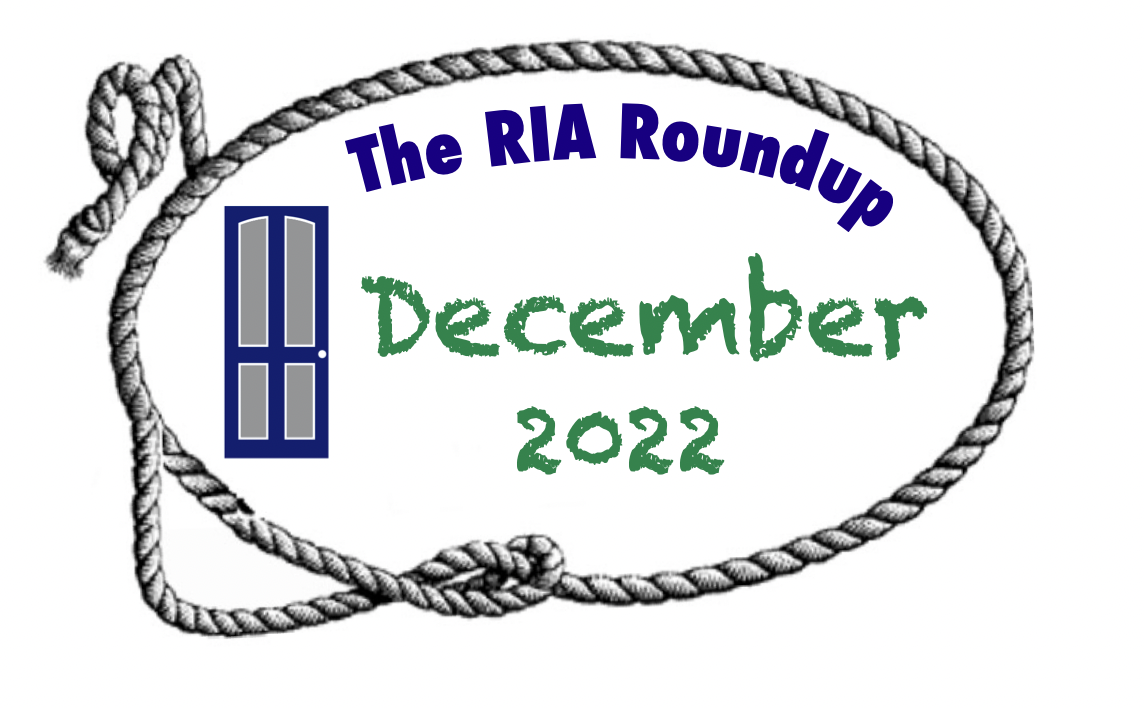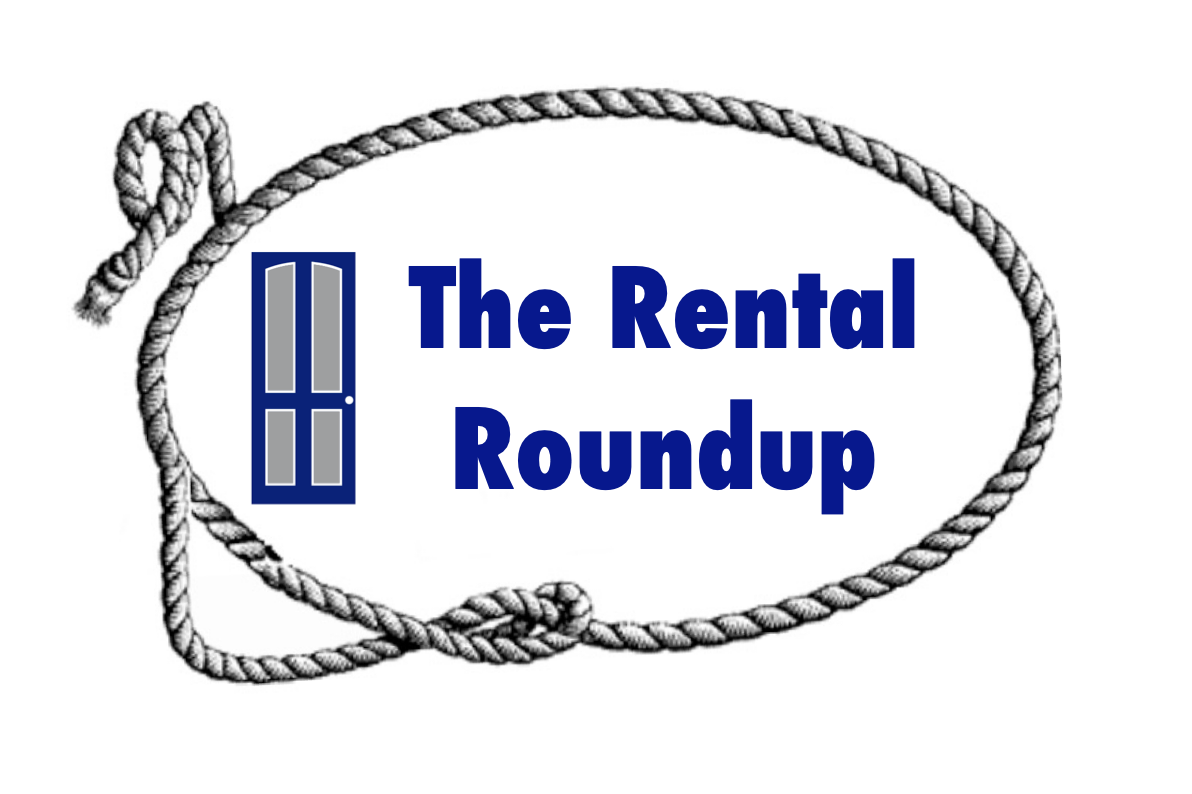December RIA Roundup: An Awful Year for Stocks
The RIA Roundup is a monthly real estate newsletter with the latest stories, data, and insights curated especially for rental property investors.
In this issue:
Lead Story: An Awful Year for Stocks
Portfolio Updates
In Other News…
Final Thoughts: Respite
Lead Story: An Awful Year for Stocks
It’s now a near certainty that 2022 will be the worst year for stocks since 2008. Here’s where the indexes stand year-to-date:
And of course, when we adjust these returns for the high inflation experienced this year, they get even worse.
Meanwhile, real estate has continued to go through the roof. For the third consecutive year, home prices have increased strongly: the value of properties I held in my portfolio at the beginning of 2022 are up over 13%.
It’s useful to recall the things I began hearing (from my coaching clients and elsewhere) in the middle of 2021: it was another real estate bubble, they said; things were getting too crazy; better to find safe harbor in stocks and bonds. Well, it turns out it wasn’t a bubble (which I suspected at the time): home prices rose more than 30% since then, and though they’ve peaked now and are headed down in some places, they have a LOT of gains to work with. Stocks over that same period fared quite poorly. This is yet another cautionary tale about trying to predict the future and time markets, which smart long-term investors — whether in stocks or real estate — simply don’t worry about.
Why Did Stocks Tank This Year?
The stock market reflects (more or less) the aggregate sentiment of investors about the short-term outlook for economic growth. When investors see dark clouds on the horizon, they generally want to divest from stocks, reducing demand for them and causing their price to drop. This year, those dark clouds took two basic forms: rising interest rates from central banks across the globe in response to high inflation (high interest rates suppress economic activity); and secondarily, the specter of a ground war in Europe, and the global economic disruptions this had the potential to cause.
Interestingly, neither of these dark clouds has yet produced much rain in the U.S. The typical measures used to gauge the health of the economy — job growth, wages, spending, unemployment, etc. — have been quite resilient despite lots of talk about a looming recession. And now, inflation is slowing down markedly, which should allow central banks to slow down their rate increases, which should in turn buoy investor sentiment. A recession may yet come in 2023, but this is far from certain.
What is the Outlook for Stocks in 2023?
Wait, didn’t I just say that trying to predict the future of markets is a fool’s errand? (Checks notes…) Yup, looks like I did. But that doesn’t stop other people from doing it. Some analysts predict stocks will rise modestly in 2023; others expect continued choppiness (whatever that means); and still others expect further declines. So after taking several hours to survey all the experts whose full-time jobs are to evaluate markets, those learned financial scholars who understand the complex forces that move global economies, I have reached the following conclusion about what will happen to stocks in 2023: they will either go up, go down, or stay the same. (You’re welcome, readers.)
If I had to make a prediction, I would predict that stocks will go up in 2023. Why? Because of this: had you made that prediction at the beginning of every year since 1926, you would have been right 73% of the time. But wait — aren’t stocks more likely to go up this year since they went down last year? Actually, no: in years after a down year, stocks go up with about the same frequency (70% of the time). This is why long-term investors take a “set it an forget it” approach to stock investing. Sometimes they go up, sometimes they go down. But mostly they go up, at least over the last 100 years. So the best thing to do in response to a down year is…nothing at all.
What Does This Have to Do With Rental Properties?
Like the stock market, rental properties are inherently volatile in the short term. This isn’t primarily due to fluctuations in the value of the homes — though home prices do sometimes go down, they are historically less volatile than stock prices. And in any case, the year-to-year value of properties isn’t the key metric for cash-flow rental property investors in the way that stock prices are for stock investors. Rather, the volatility with rental properties is driven by high-impact, low-likelihood events such as large maintenance/CapEx bills, expensive tenant turns, or tenant non-payment/evictions. In any given year, these types of events can completely wipe out the cash flow for a property — and then some.
With either type of investing, a long-term outlook allows you to successfully ride out the short-term ups and downs. Because in either case, if you panic and pull the plug when things go south, you will miss out on the long-term benefits. As Churchill famously said, if you’re going through hell, keep going.
This is an apt sentiment for stock investors after this very bad 2022, during which stocks lost ~20% of their value. But that doesn’t make stocks a bad investment going forward. In fact, it doesn’t change anything about how we should view them going forward: they are still a solid long-term investment vehicle that has historically produced ~7% returns above inflation.
Whether you invest in rental properties, stocks, or both, the old boring advice is still the best: diversify and hold for the long-term. With rental properties, diversification takes the form of additional properties (since any one property can be quite volatile year to year); with stocks, it means buying index funds rather than picking individual stocks.
Though I write about rental properties, I am also a stock investor. All my retirement money is in a total stock index fund, and I continue to contribute to retirement accounts each year. Nothing about last year’s results will change my strategy. There are three main reasons I like holding stocks in my retirment accounts:
Diversification across asset classes is also valuable, because as we’ve seen in 2022, sometimes real estate goes up when stocks go down (or vice versa);
It’s relatively difficult (though not impossible) to own rental properties inside retirement accounts, but I nonetheless wanted to maximize the tax benefits of retirement accounts throughout my working career; and
Stocks have historically been excellent long-term investments.
If you want to take a deep dive into the stocks vs. rental properties debate, I invite you to explore my article on the topic, which uses in-depth modeling to examine the potential investment returns for both asset classes. The conclusion I reach in that article is that rental properties’ unique advantages make them likely to be the BETTER of the two investments long-term, which is why all my non-retirement investing is focused on rentals.
But I will continue to invest in stocks as well. And I will continue to ignore the short-term results, just as I do with my rental properties. Which is a nice segue to the most recent updates in my portfolio…
Portfolio Updates
I recently published my November Portfolio Report. That month, my properties produced another $6K+ in net cash flow, bringing my YTD total to nearly $65K. This is still somewhat short of my pro forma target, unfortunately, a fact I will be forced to reckon with as I review my projections for the future:
Also in November, Property #20 came online, and was occupied pretty quickly after my initial rent-ready scope was completed. So far, it has met all my initial expectations, and I’m quite happy with it.
I’ve yet to write the Property Spotlights for my other new properties (Properties #21 through #25), but you’ll start seeing those being published in the new year, along with a close look at the numbers for the 1031 exchange that powered most of these new acquisitions.
Finally, with 2022 nearly concluded, I will soon begin work on my Annual Report, to bring together all the data from the past year and see what learnings I need to take forward. As part of that, I will also update the bottom section of each Property Spotlight with annual results for each property. This annual compilation is quite a bit of work, but it’s an important exercise to stay on top of my investments and understand how they’re performing — and hopefully you enjoy the insights as well.
In Other News…
Inflation cools. Prices rose less than expected in November. In fact, prices rose only 0.1% compared to the previous month; on an annualized basis, this is below the Fed’s target of 2% inflation. Still, the Fed continued its rate hike extravaganza, raising interest rates another half point in December.
FTX fallout continues. In an update from last month’s Roundup, SBF was arrested in the Bahamas — the place where he just LOVED to buy fancy houses for himself and his buddies using investors’ money – and has been extradited to the United States. With several of his top lieutenants already working with law enforcement, his legal troubles are likely to continue mounting.
The SEC asserts itself. The Securities and Exchange Commission, famous for its toothlessness, has actually been biting pretty hard of late: this month alone, it established new market rules, and is suing eight men who ran a pump-and-dump penny stock scheme through their social media accounts.
Fusion energy breakthrough. Researchers ignited a controlled fusion reaction that created more energy than they put into it. (Quick primer: it’s called “fusion” because two hydrogen atoms fuse together in this reaction to create a single helium atom. Like all stars, the Sun is an enormous fusion reactor that also creates net energy, which we receive in the form of light and heat.) This is truly an astonishing breakthrough, though everyone is very quick to caution that commercial fusion energy is many decades away, at least – which is exactly what they’ve been saying for the last 70 years or so.
The World Cup concludes. The cloud of corruption that has cast a shadow over this Cup grew ever larger, with former and current members of EU Parliament arrested this month for taking bribes. Despite all that, there were some terrific matches, including an epic finale between Argentina and France in which the great Lionel Messi finally reached the pinnacle of his sport at its biggest contest. (Is Messi the GOAT? This is always difficult to say, and of course it’s subjective. But yes, he is.)
James Webb Telescope peers back in time: The earliest known galaxies have been detected by this still-jaw-droppingly-cool telescope, and the findings are re-writing our understanding of the early history of the universe.
Cancer vaccine shows promise: Moderna, the company behind the highly effective vaccine for Covid-19, said several years ago that they planned to use the same mRNA technology to develop vaccines for other diseases, including cancer. Now their first one, a vaccine for the most dangerous form of skin cancer, melanoma, is showing early promise in clinical trials.
White Christmas comes at a cost: More Americans than normal will have a white Christmas this year — but the same storm that brought the snow also snarled travel across the country, and turned deadly in places like Buffalo.
Final Thoughts: Respite
I was going to finish up this month’s Roundup by writing about Elon Musk and Twitter, because the twists and turns of the story continue to be fascinating — like a train wreck is fascinating, or a large asteroid barreling toward your home planet. But somehow the Musk fiasco didn’t feel right for the season. Maybe I’ll tackle it next month, after more of the saga plays out.
For now, I find myself in a different frame of mind. I’m writing from an impossibly cozy cabin in the Catskills mountains north of New York City:
Like Thoreau, I’ve come to the woods:
“I went to the woods because I wished to live deliberately, to front only the essential facts of life, and see if I could not learn what it had to teach, and not, when I came to die, discover that I had not lived. I did not wish to live what was not life, living is so dear; nor did I wish to practice resignation, unless it was quite necessary. I wanted to live deep and suck out all the marrow of life, to live so sturdily and Spartan-like as to put to rout all that was not life, to cut a broad swath and shave close, to drive life into a corner, and reduce it to its lowest terms.”
Thoreau lived more than two years at Walden Pond. (I guess he needed that much time to recharge from the hustle-bustle rat race...of the 1840s?) Anyway, my little jaunt hardly compares – it was just three days long, and before arriving I stocked up at a natural foods store and a wine shop, which I’m pretty sure was not on Thoreau’s itinerary. But my motivation was basically the same as his: to opt out — temporarily, but intentionally — of a “normal” daily existence that increasingly asks too much of us, and takes too much from us. I needed a bit of…respite.
When I got here, I slowed down – my mind, my steps, even my breathing. There’s no WiFi, no streaming. I got lost in some good fiction, a rare pleasure. I did some focused writing. I took morning walks in the snowy woods. I built fires and made s’mores. I went to bed early and woke up with the sun.
Because life’s “lowest terms”, to borrow Thoreau’s words, are the same as they’ve ever been: a warm bed, a full belly, and meaningful connections (to nature, to other people, to anything that produces awe, passion, inspiration, or purpose.) Stripping away all the other routine excesses of modern life re-kindles your appreciation for those simple, foundational things simply by forcing you to notice them.
Respite, then, is life reduced to its “lowest terms”; but it’s also the ultimate luxury. I’m grateful that I’m healthy and wealthy enough to be able to rest, and to think, and to live life on my own terms. This is especially true since I left my office job: this little glamping trip was not something I had to squeeze into a too-short weekend, but rather something for which I could block my calendar and do any time I chose. This is thanks to my rental properties, but also thanks to a hundred other instances of good fortune I’ve experienced in my life. I’ve probably been luckier than 99.99% of humans who have ever lived.
I hope each of you is able to achieve some respite this holiday season: to breathe deeply, think deeply, make meaningful connections, and pause to be grateful for what you have. I certainly am.
Happy investing,
Eric
About the Author
Hi, I’m Eric! I used cash-flowing rental properties to leave my corporate career at age 39. I started Rental Income Advisors in 2020 to help other people achieve their own goals through real estate investing.
My blog focuses on learning & education for new investors, and I make numerous tools & resources available for free, including my industry-leading Rental Property Analyzer.
I also now serve as a coach to dozens of private clients starting their own journeys investing in rental properties, and have helped my clients buy millions of dollars (and counting) in real estate. To chat with me about coaching, schedule a free initial consultation.
Free Rental Property Analyzer
You probably know that a well-designed rental property calculator is the most important tool a real estate investor has. It allows you to quickly calculate key metrics and understand your cash returns on a target property. You can also answer questions like:
How much do your cash-on-cash returns improve if you use a mortgage vs. paying in cash?
What will your average monthly cash flow be?
How will your returns change in future years?
Those questions can be easily answered with side-by-side comparisons in the RIA Property Analyzer. I guarantee this is the best free rental property calculator out there today, and many of my readers have told me the same. It’s both powerful and very simple and intuitive to use. Check it out!



































